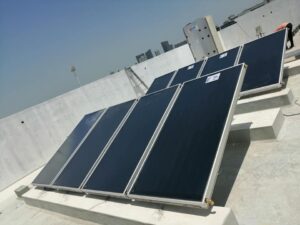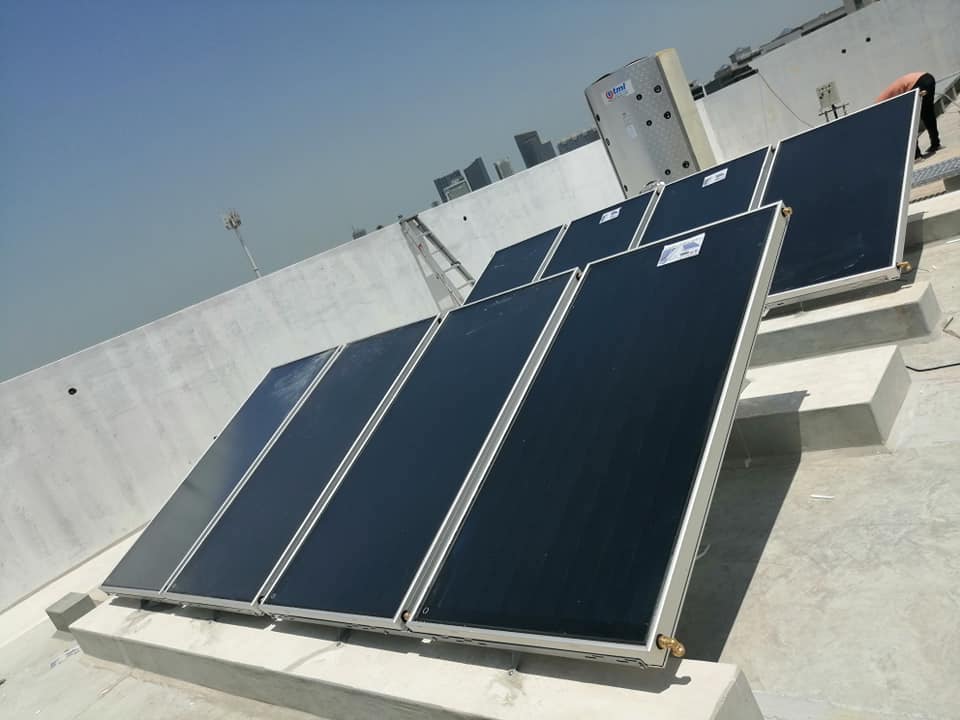Introduction to Solar Water Heaters
If you’ve ever looked for ways to reduce your energy bill and make your home more eco-friendly, you’ve probably come across the term solar water heater. This clever system uses the sun’s energy to heat water, saving you money while cutting down on harmful emissions. With the world leaning towards greener solutions, solar water heaters are becoming a smart choice for homes and businesses alike.
So, what exactly is a solar water heater? It’s a device that uses solar panels, usually installed on rooftops, to collect solar energy. This energy is then transferred to heat water stored in a tank. It’s an efficient and eco-friendly alternative to gas or electric heaters. What makes it even more appealing is the fact that it significantly reduces your electricity bill without compromising on performance.
Whether you’re considering installing a solar heater for the first time or upgrading an old system, understanding how they work and the benefits they bring is essential. More importantly, proper solar water heater service and timely solar heater repair are critical to keeping your system running smoothly. This guide will walk you through everything you need to know to make the most out of this solar-powered solution.
How Solar Water Heaters Work
 Let’s break down the magic behind how these eco-friendly machines work. A solar water heater system is composed of three main parts: solar collectors, a storage tank, and a circulation system. The collectors, often flat panels or evacuated tubes, absorb solar energy. This heat is transferred to the water either directly or via a heat-transfer fluid, depending on the system type.
Let’s break down the magic behind how these eco-friendly machines work. A solar water heater system is composed of three main parts: solar collectors, a storage tank, and a circulation system. The collectors, often flat panels or evacuated tubes, absorb solar energy. This heat is transferred to the water either directly or via a heat-transfer fluid, depending on the system type.
Here’s a step-by-step breakdown:
-
Solar collection: The panels absorb sunlight and convert it into heat.
-
Heat transfer: The system moves the heat into water stored in an insulated tank.
-
Storage and use: The hot water is stored until needed for household use, whether it’s for bathing, cleaning, or cooking.
Depending on the design, solar heaters can be either active (using pumps) or passive (relying on natural convection). While active systems tend to be more efficient, they’re also more complex and may need more frequent solar heater repair and solar water heater service.
Solar heaters can function even in colder climates, thanks to antifreeze solutions and advanced insulation. However, the efficiency does depend on factors like sunlight availability and system maintenance. That’s why choosing the right model and keeping it serviced is so important.
Types of Solar Heaters
Not all solar water heaters are built the same. There are several types designed to meet different climate conditions and household needs. Understanding the options will help you choose the best fit.
Active Solar Water Heaters
These systems use pumps to circulate water or heat-transfer fluids between the collectors and storage tank. They are further divided into:
-
Direct Circulation Systems: These work best in climates where freezing isn’t a concern. Water flows through the collectors, gets heated, and moves into the tank.
-
Indirect Circulation Systems: Perfect for colder areas. A heat-transfer fluid runs through the collectors and then transfers the heat to the water via a heat exchanger.
Passive Solar Water Heaters
These don’t use pumps and rely on gravity and natural convection. They are simpler and cheaper but typically less efficient.
-
Integral Collector Storage (ICS): Great for moderate climates.
-
Thermosyphon Systems: Rely on the natural movement of hot water rising and cold water sinking.
Whether you go with an active or passive system, regular solar water heater service will ensure it performs at its best. Plus, knowing the type you own helps when troubleshooting issues or scheduling solar heater repair.
Advantages of Using a Solar Water Heater
Thinking about switching to a solar water heater? Here’s why it’s a smart move.
1. Cost Savings
A solar water heater can cut your electricity bills drastically. Once installed, the sun does the rest of the work for free. Sure, the upfront cost may be higher than traditional water heaters, but the savings over time make it well worth it. On average, households save up to 70% on their water heating costs.
2. Environmentally Friendly
Using solar energy means fewer greenhouse gas emissions. Unlike gas or electric heaters, solar heaters don’t burn fossil fuels, helping reduce your carbon footprint. In fact, using a solar heater is equivalent to planting dozens of trees each year in terms of environmental impact.
3. Energy Independence
Why depend on utility companies when the sun is available every day? Solar heaters give you a sense of energy freedom and stability, especially in areas where power outages are common.
4. Low Maintenance
With proper solar water heater service once or twice a year, your system can run efficiently for 15-20 years. That’s a solid investment! Most issues are easy to detect and fix with minimal solar heater repair.
Switching to a solar heater is more than a trend—it’s a lifestyle change toward sustainability and smart living.
Factors to Consider Before Installing a Solar Heater
Before you rush to buy and install a solar water heater, take a moment to consider a few key things:
1. Sunlight Availability
Solar heaters thrive on sunlight. If your home is in a region with consistent sunshine, it’s a great fit. On the other hand, heavily shaded or cloudy areas might reduce the system’s efficiency, so placement and angle of the panels are crucial.
2. Roof Orientation and Structure
Ideally, the roof should face south (in the northern hemisphere) for maximum sunlight exposure. It should also be strong enough to support the weight of the solar collectors and the tank.
3. Household Hot Water Needs
Bigger families need bigger systems. A professional can help calculate your average daily water use and recommend the right system size.
4. Budget and Incentives
While the initial cost might be higher, government rebates and tax credits can significantly reduce your expenses. Over time, energy savings will pay back the investment.
5. Access to Professional Service
Make sure you have access to quality solar water heater service providers in your area. Also, check the availability of spare parts and professionals for solar heater repair if needed.
